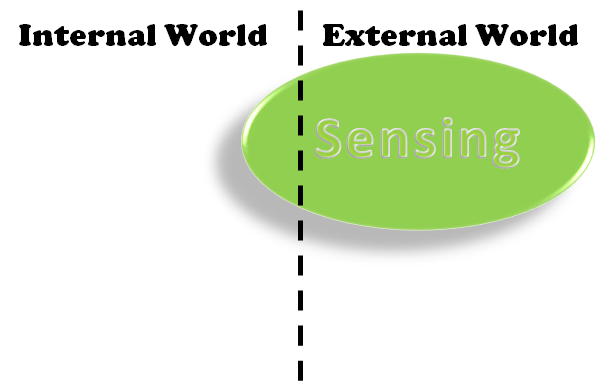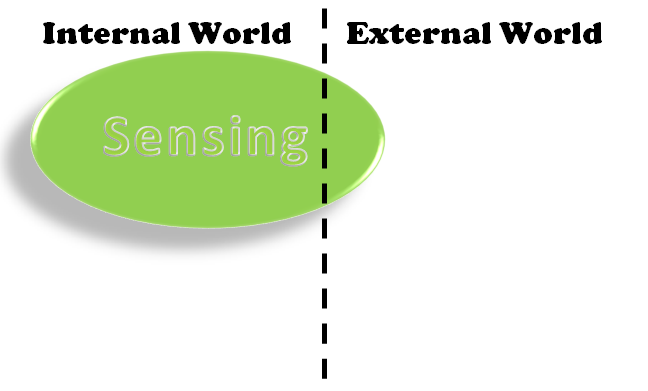Introverted Sensing (Si)
Those who direct their Sensing function inwardly make up 65% of the population. This means that roughly 2 out of every 3 people you interact with will draw on this function to some capacity or another. The ISFJ and ISTJ choose Introverted Sensing as their dominant preference while the ESFJ and ESTJ use it to support their Feeling and Thinking functions respectively. The INFP, INTP, ENFP and ENTP also possess Introverted Sensing; however, it can be found in their 3rd and 4th functions and does not often impact their behavior.
Introverted Sensing leads a person to compare the present facts against their past experience; and they trust the past. For this to be possible, they must constantly store sensory data for future use. Introverted Sensors are often able to soak in lots of details like a thirsty sponge. Since present experiences are automatically linked to prior experiences, judgments and associations can be made systematically. A favorite dish tastes different than normal. A new acquaintance reminds them of a familiar friend. A particular aroma brings back a favorite memory seemingly out of the blue. This function also involves the skill of reviewing past lessons–personal experiences, skills learned, historical examples, etc.–to answer the questions of the present.
Those with Introverted Sensing are often detail oriented with a drive to clarify desired goals and objectives in order to make things happen. They are the ones who embrace the ageless customs that sustain a nation. It is no surprise that they are often found among military commanders, political leaders, business management and other guardians of the culture.
Extroverted Sensing (Se)
Those with Extroverted Sensing make up about 35% of the population. So that other 1 out of the 3 people you are interacting with is directing this preference outwardly. The ESFP and ESTP choose this function as their dominant preference while the ISFP and ISTP use it to support their dominant functions of Feeling and Thinking respectively. ENFJs, ENTJs, INFJs, and INTJs also have Extroverted Sensing, although it is in their 3rd and 4th functions and not likely to play a major role in the way they operate.

This whole process usually happens very quickly. They are able to follow their physical impulses or instincts to produce the desired action exactly when it is needed because they follow sensory cues to the limits of the situation for maximum impact. It should be no surprise that those with Extroverted Sensing can often be found among professional athletes, actors, pop stars and top business moguls.
Extroverted Sensing occurs when a person is primarily aware of the external world and all its details. They act on present experience and concrete data to produce the desired results and let go of everything else–past experience and future consequences. Right here and right now is often all that can be seen. A person with this preference is able to isolate the relevant facts from the sea of data around them, and they continue seeking more and more information until they have either grasped the whole picture or their circumstances have changed and their attention is directed elsewhere.
Hire Better and
Manage Smarter
We combine 3 proven, established assessments into one, giving you the most comprehensive view of a person.
Are you seeking an assessment for personal use? Click Here

